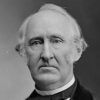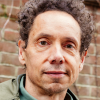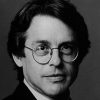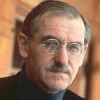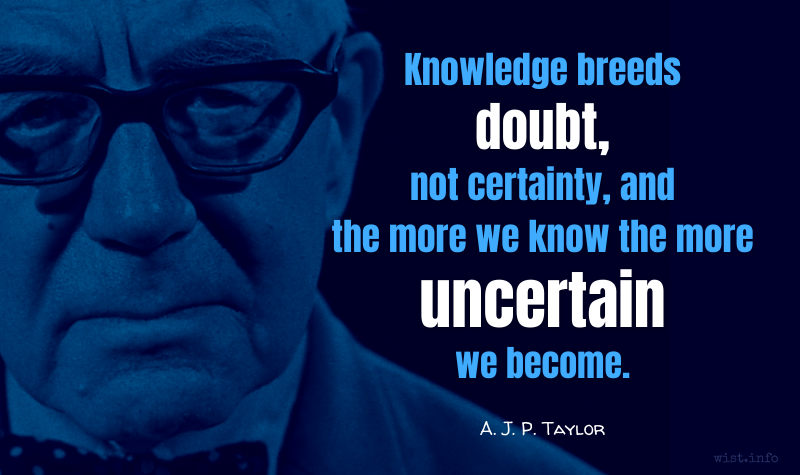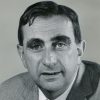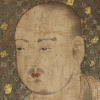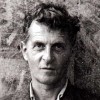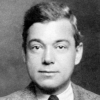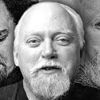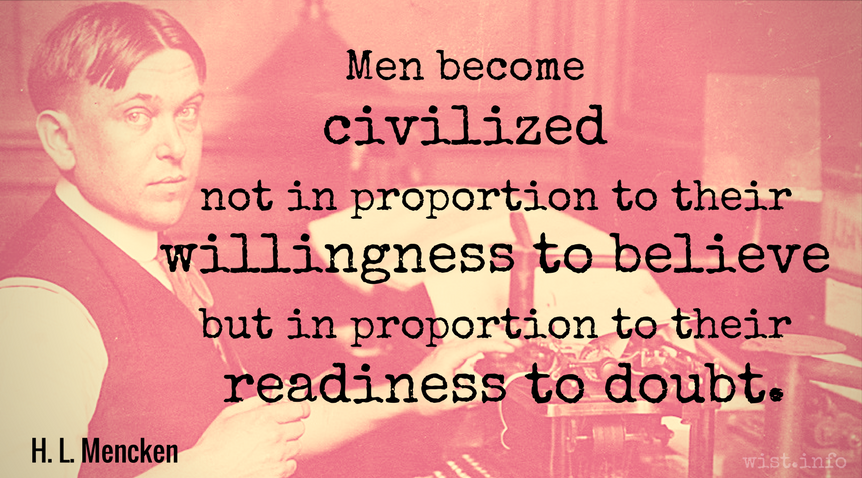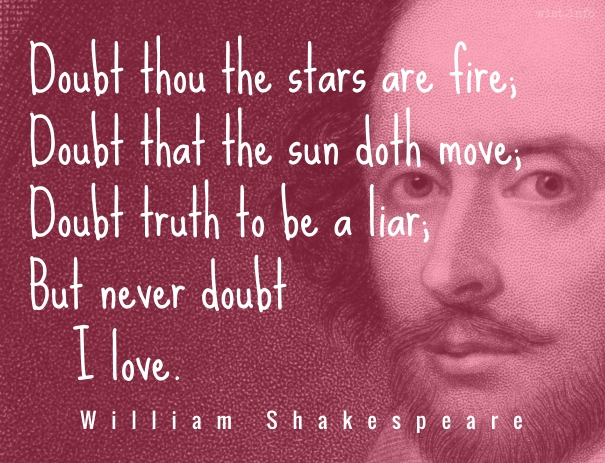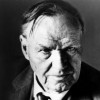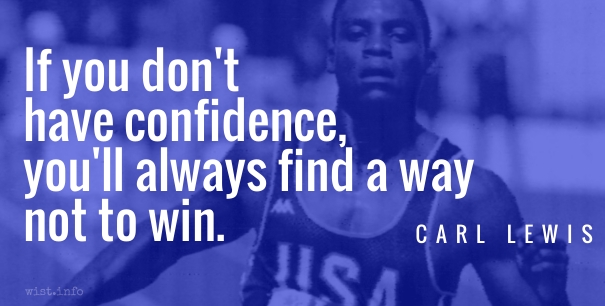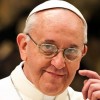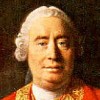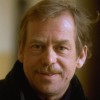I lay it down as a general rule, Harriet, that if a woman doubts as to whether she should accept a man or not, she certainly ought to refuse him. If she can hesitate as to ‘Yes,’ she ought to say ‘No’ directly.
Quotations about:
doubt
Note not all quotations have been tagged, so Search may find additional quotes on this topic.
“So far,” said I, “is this from filling me,
I famish more than if I’d held my tongue,
And in my mind pile up perplexity.”[“Io son d’esser contento più digiuno”,
diss’io, “che se mi fosse pria taciuto,
e più di dubbio ne la mente aduno.”]Dante Alighieri (1265-1321) Italian poet
The Divine Comedy [Divina Commedia], Book 2 “Purgatorio,” Canto 15, l. 58ff (15.58-60) (1314) [tr. Sayers (1955)]
(Source)
Dante complaining about the quality of some of Virgil's answers.
(Source (Italian)). Alternate translations:
"Oft, as I drink of that celestial rill,"
I cry'd, "I find my thirst increasing still;
Its copious draughts but more inflame my soul
In search of heav'nly truth."
[tr. Boyd (1802), st. 13]
“Now lack I satisfaction more,” said I,
“Than if thou hadst been silent at the first,
And doubt more gathers on my lab’ring thought."
[tr. Cary (1814)]
"Less satisfied am I than what I was,"
I said, "than if I still had held my peace;
And in my mind still more the doubts increase."
[tr. Bannerman (1850)]
"I am more hungering to be satisfied,"
I said, "than if I had before been silent,
And more of doubt within my mind I gather."
[tr. Longfellow (1867)]
"I am more fasting from being satisfied," said I, "than if I had before held my peace, and I unite more doubt in my mind."
[tr. Butler (1885)]
"Through being contented, I do hunger more
Than if thou first hadst silent been," I said,
"And in my mind I gather doubt galore."
[tr. Minchin (1885)]
“I am more hungering to be contented,” said I, “than if I had at first been silent, and more of doubt I assemble in my mind.
[tr. Norton (1892)]
"I am more fasting from being satisfied," said I, "than if I had kept silent at first, and more perplexity I amass in my mind."
[tr. Okey (1901)]
"I am more hungry for satisfaction" I said "than if I had been silent before and my mind is more filled with perplexity."
[tr. Sinclair (1939)]
"From being satisfied I fast not less
But more," said I, "than had I question spared,
And in my mind doubt doth the more increase."
[tr. Binyon (1943)]
"I am left hungier being thus fed,
and my mind is more in doubt being thus answered,
than if I had not asked at all," I said.
[tr. Ciardi (1961)]
"I am more hungering to be satisfied," I said, "than if I had at first been silent, and more of doubt do I assemble in my mind."
[tr. Singleton (1973)]
"I hunger more for satisfaction now,”
I said, “than when I held my tongue before,
and new perplexities come to my mind."
[tr. Musa (1981)]
"I am the more starved of satisfaction,"
I said, "than if I had said nothing just now,
And more doubt collects in my mind."
[tr. Sisson (1981)]
“I am more hungry now for satisfaction"
I said, "than if I'd held my tongue before;
I host a deeper doubt within my mind."
[tr. Mandelbaum (1982)]
“I am hungrier to be contented,” I said, “than if you had been silent earlier, and I am gathering more doubt in my mind."
[tr. Durling (2003)]
I said: "I am hungrier by being fed than if I had kept silent from the start, and I have added more confusion to my mind."
[tr. Kline (2002)]
"I hunger more for satisfaction now
than if," I said, "you'd not said anything.
I gather in my mind still greater doubt."
[tr. Kirkpatrick (2007)]
"I am more starved for answers," I said,
"'than if before I had kept silent,
since now my mind is filled with greater doubt."
[tr. Hollander/Hollander (2007)]
"My hunger for knowledge is now less satisfied,"
I said, "than if I had never asked the question,
And the more doubt collects in my troubled mind."
[tr. Raffel (2010)]
I think nobody should be certain of anything. If you’re certain, you’re certainly wrong, because nothing deserves certainty, and so one ought always to hold all one’s beliefs with a certain element of doubt and one ought to be able to act vigorously in spite of the doubt.
Bertrand Russell (1872-1970) English mathematician and philosopher
Interview by Woodrow Wyatt, BBC TV (1959)
(Source)
Collected in Bertrand Russell's BBC Interviews (1959) [UK] and Bertrand Russell Speaks His Mind (1960) [US]. Reprinted (abridged) in The Humanist (1982-11/12), and in Russell Society News, #37 (1983-02).
If there be any man who derides the unseen world, let him consider the death of Pentheus, and acknowledge the gods.
[εἰ δ᾽ ἔστιν ὅστις δαιμόνων ὑπερφρονεῖ,
ἐς τοῦδ᾽ ἀθρήσας θάνατον ἡγείσθω θεούς.]Euripides (485?-406? BC) Greek tragic dramatist
Bacchæ [Βάκχαι], l. 1325ff [Cadmus/κάδμος] (405 BC) [tr. Vellacott (1973)]
(Source)
(Source (Greek)). Alternate translations:
If any impious mortal yet contemns
The Powers celestial, let him view the death
Of Pentheus, to convince him there are Gods.
[tr. Wodhull (1809)]
If anyone scorns the gods, let him look to the death of this man and acknowledge them.
[tr. Buckley (1850)]
O if there be he who scorneth the great gods,
Gaze on this death, and know that there are gods.
[tr. Milman (1865)]
If there be one who still disdains the gods,
Let him behold this corpse and reverence them.
[tr. Rogers (1872), l. 1293ff]
Ah! if there be any man that scorns the gods, let him well mark this prince’s death and then believe in them.
[tr. Coleridge (1891)]
If any man there be that scorns the Gods,
This man's death let him note, and so believe.
[tr. Way (1898)]
Oh, whoso walketh not in dread
Of Gods, let him but look on this man dead!
[tr. Murray (1902)]
If there is still any mortal man
who despises or defies the gods, let him look
on this boy's death and believe in the gods.
[tr. Arrowsmith (1960)]
If there is any man who despises deity
let him look on Pentheus’ death, and judge that gods exist!
[tr. Kirk (1970)]
If any man thinks light of the divine ones,
let him consider this man’s death, and believe in gods.
[tr. Neuburg (1988)]
If there be any man who challenges or scorns
the unseen powers,
let him look on this boy's death and accept
that which is God.
[tr. Cacoyannis (1982)]
If there is anyone who despises the gods,
Looking on this death, let him believe.
[tr. Blessington (1993)]
So if there is anyone who disdains the gods
let him look at the death of this man here and let him believe that gods exist.
[tr. Esposito (1998)]
If there is anyone who despises the divine,
he should look at this man's death and believe in gods.
[tr. Woodruff (1999)]
Anyone who feels
Superior to the gods should study this:
Pentheus is dead -- believe in the gods!
[tr. Gibbons/Segal (2000)]
If there is anyone who thinks nothing of heaven's power, let him look at this man's death and believe that the gods exist.
[tr. Kovacs (2002)]
Let he who would defy the gods’ demands
Look at this piteous death and believe.
[tr. Teevan (2002)]
If there’s anyone who insults the gods let him turn his eyes to this and let him believe.
[tr. Theodoridis (2005)]
If there is anyone here who casts a disparaging eye
Upon the Divine, look now on this and know the Gods exist.
[tr. Valerie (2005)]
If there's a man who disrespects the gods,
let him think about how this man perished --
then he should develop faith in them.
[tr. Johnston (2008)]
If anyone still disputes the power of heaven,
let them look at this boy's death
and they will see that the gods live.
[tr. Robertson (2014)]
If there are any left who would look down on the gods, let them see this.
This death.
And let them know the gods.
[tr. Pauly (2019)]
If anyone, anywhere, denies the gods,
seeing this death, let him belisve in them.
[tr. Behr/Foster (2019)]
If anyone scorns the daimones, let him look to the death of this man and acknowledge them.
[tr. Buckley/Sens/Nagy (2020)]
He who stifles free discussion, secretly doubts whether what he professes to believe is really true.
Wendell Phillips (1811-1884) American abolitionist, orator, social activist
Speech, Daniel O’Connell celebration, Boston (1870-08-06)
(Source)
I hav lived in this world jist long enuff tew look karefully the seckond time into things that i am the most certain ov the fust time.
[I have lived in this world just long enough to look carefully the second time into things that I am the most certain of the first time.]
Josh Billings (1818-1885) American humorist, aphorist [pseud. of Henry Wheeler Shaw]
Everybody’s Friend, Or; Josh Billing’s Encyclopedia and Proverbial Philosophy of Wit and Humor, ch. 152 “Affurisms: Chicken Feed” (1874)
(Source)
You believe someone not because you have no doubts about them. Belief is not the absence of doubt. You believe someone because you don’t have enough doubts about them.
Malcolm Gladwell (b. 1963) Anglo-Canadian journalist, author, public speaker
Talking to Strangers: What We Should Know About the People We Don’t Know (2019)
(Source)
You are the sun who heals all clouded sight.
Solving my doubts, you bring me such content
That doubt, no less than knowing, is delight.[O sol che sani ogne vista turbata,
tu mi contenti sì quando tu solvi,
che, non men che saver, dubbiar m’aggrata.]Dante Alighieri (1265-1321) Italian poet
The Divine Comedy [Divina Commedia], Book 1 “Inferno,” Canto 11, l. 91ff (11.91-93) [Dante] (1309) [tr. Kirkpatrick (2006)]
(Source)
Flattering Virgil before he asks another question. (Source (Italian)). Alternate translations:
O you, who like the Sun each weaken'd sight
Relieve, and give such pleasure when you clear
My doubts, that I to raise them oft desire.
[tr. Rogers (1782), l. 89ff]
Can I repent my doubts! illumin'd Bard,
When thus thy heav'nly words my doubts reward?
[tr. Boyd (1802), st. 14]
O Sun! who healest all imperfect sight,
Thou so content’st me, when thou solv’st my doubt,
That ignorance not less than knowledge charms.
[tr. Cary (1814)]
O Sun, that healest every troubled sight!
So full content, thou solving, doth ensue,
Glads me no less to doubt, than judge aright.
[tr. Dayman (1843)]
O Sun! who healest all troubled vision, thou makest so glad when thou resolvest me, that to doubt is not less grateful than to know.
[tr. Carlyle (1849)]
Thou sun, that clearest every clouded sight,
You so content me to dissolve the knot,
To know is scarce so pleasing as to doubt.
[tr. Bannerman (1850)]
Oh, sun! thou healer of the troubled sight,
What thou declarest makes me so content,
That as in knowledge I rejoice in doubt.
[tr. Johnston (1867)]
O Sun, that healest all distempered vision,
Thou dost content me so, when thou resolvest,
That doubting pleases me no less than knowing!
[tr. Longfellow (1867)]
O Sun that healest every troubled sight, so dost thou content me when thou solvest, that doubting gives me no less pleasure than knowing.
[tr. Butler (1885)]
O Sun, that healest every troubled sight.
Thou so contentest me when thou mak'st clear
Doubts, that no less than knowledge they delight.
[tr. Minchin (1885)]
O Sun that healest every troubled vision, thou dost content me so, when thou explainest, that doubt, not less than knowledge, pleaseth me.
[tr. Norton (1892)]
O sun, that bringest healing unto all clouded vision, thou grantest unto me such satisfaction in thine unravelling, that doubting doth delight me.
[tr. Sullivan (1893)]
Oh! sun, who makest whole all troubled vision.
Thou dost content me so when thou resolvest
That doubt is joy to me, no less than knowledge.
[tr. Griffith (1908)]
O Sun that healest all troubled sight, so dost thou satisfy me with the resolving of my doubts that it is no less grateful to me to question than to know.
[tr. Sinclair (1939)]
O Sun, who heal'st all troubled vision, and so
Contentest me where thou doest certify,
That to doubt pleaseth not less than to know ....
[tr. Binyon (1943)]
O Sun that healest all dim sight, thou so
Doest charm me in resolving of my doubt,
To be perplexed is pleasant as to know.
[tr. Sayers (1949)]
O sun which clears all mists from troubled sight,
such joy attends your rising that I feel
as grateful to the dark as to the light.
[tr. Ciardi (1954)]
O sun that heal every troubled vision, you do content me so, when you solve, that questioning, no less than knowing, pleases me.
[tr. Singleton (1970)]
O sun that shines to clear a misty vision,
such joy is mine when you resolve my doubts
that doubting pleases me no less than knowing!
[tr. Musa (1971)]
O sun that heals all sight that is perplexed,
when I ask you, your answer so contents
that doubting pleases me as much as knowing.
[tr. Mandelbaum (1980)]
O sun who clears every obscure perception
You give such satisfaction when you enlighten me
That, not less than knowledge, doubt is agreeable.
[tr. Sisson (1981)]
O sun, that makes all troubled vision clear,
You give solutions I am so contented with
That asking, no less than knowing, pleases me.
[tr. Pinsky (1994), l. 87ff]
O sun that heals every clouded sight, you content me so when you resolve questions, that doubting is no less pleasurable than knowing.
[tr. Durling (1996)]
O Sun, that heals all troubled sight, you make me so content when you explain to me, that to question is as delightful as to know.
[tr. Kline (2002)]
O sun, you who heal all troubled sight,
you so content me by resolving doubts
it pleases me no less to question than to know.
[tr. Hollander/Hollander (2007)]
O shining sun, healer of troubled vision,
I'm satisfied so well, my mind so settled,
That knowledge pleases me no more than asking questions!
[tr. Raffel (2010)]
"Bright sun," I said, you calm these doubts of mine
As you heal any troubled sight. Such ease
You bring me that to question pleases me
Like being answered."
[tr. James (2013)]
If I valued fame, I should flatter received opinions, which have gathered strength by time, and will yet wear longer than any living works to the contrary. But, for the soul of me, I cannot and will not give the lie to my own thoughts and doubts, come what may. If I am fool, it is, at least, a doubting one; and I envy no one the certainty of his self-approved wisdom.
It was one of the rules which above all others made Doctr. Franklin the most amiable of men in society, “never to contradict any body.” if he was urged to announce an opinion, he did it rather by asking questions, as if for information, or by suggesting doubts.
Thomas Jefferson (1743-1826) American political philosopher, polymath, statesman, US President (1801-09)
Letter to Thomas Jefferson Randolph (24 Nov 1808)
(Source)
Referring to Benjamin Franklin.
Our secularism is hard-won, the product of centuries of political, intellectual, and sometimes physical courage. Secularism is the institutionalization of doubt, or more precisely of respect for doubt. It is harder to love doubt than to love freedom. So we are grudging about our secularism, and some of us are a little ashamed of it. Maybe it takes Rushdie’s nightmare and Khomeini’s rage to remind us how precious it is, and how fiercely it must be guarded.
Hendrik Hertzberg (b. 1943) American journalist, editor, speech writer, political commentator
“TRB from Washington,” The New Republic (20 Mar 1989)
(Source)
BECKET: Beauty is one of the few things which don’t shake one’s faith in God.
[Le beauté est une des rares choses qui ne font pas douter de Dieu.]
Jean Anouilh (1910-1987) French dramatist
Becket, Act 1 (1959) [tr. Hill (1960)]
(Source)
The official English translation approved by Anouilh. (Source (French)). Alternate translations:
Beauty is one of the very few things that don't shake one's faith in God.
[tr. Raphael and Raphael (2004)]
Beauty is one of the rare things that do not lead to doubt of God.
[Frequently found translation, but source unknown]
Once you become self-conscious, there is no end to it; once you start to doubt, there is no room for anything else.
Mignon McLaughlin (1913-1983) American journalist and author
The Neurotic’s Notebook, ch. 5 (1963)
(Source)
I felt fairly sure that the Almighty, whatever name tag He had on at the moment, could handle a few questions from people sincerely looking for answers. Hell, He might even like it.
Inquiry into the evidence of a doctrine is not to be made once for all, and then taken as finally settled. It is never lawful to stifle a doubt; for either it can be honestly answered by means of the inquiry already made, or else it proves that the inquiry was not complete.
“But,” says one, “I am a busy man; I have no time for the long course of study which would be necessary to make me in any degree a competent judge of certain questions, or even able to understand the nature of the arguments.” Then he should have no time to believe.
William Kingdon Clifford (1845-1879) English mathematician and philosopher
“The Ethics of Belief,” Part 1 “The Duty of Inquiry,” Lecture, London (11 Apr 1876)
(Source)
Every time we let ourselves believe for unworthy reasons, we weaken our powers of self-control, of doubting, of judicially and fairly weighing evidence. We all suffer severely enough from the maintenance and support of false beliefs and the fatally wrong actions which they lead to, and the evil born when one such belief is entertained is great and wide. But a greater and wider evil arises when the credulous character is maintained and supported, when a habit of believing for unworthy reasons is fostered and made permanent.
William Kingdon Clifford (1845-1879) English mathematician and philosopher
“The Ethics of Belief,” Part 1 “The Duty of Inquiry,” Lecture, London (11 Apr 1876)
(Source)
To know all about anything is to know how to deal with it under all circumstances. We feel much happier and more secure when we think we know precisely what to do, no matter what happens, than when we have lost our way and do not know where to turn. And if we have supposed ourselves to know all about anything, and to be capable of doing what is fit in regard to it, we naturally do not like to find that we are really ignorant and powerless, that we have to begin again at the beginning, and try to learn what the thing is and how it is to be dealt with — if indeed anything can be learnt about it. It is the sense of power attached to a sense of knowledge that makes men desirous of believing, and afraid of doubting.
William Kingdon Clifford (1845-1879) English mathematician and philosopher
“The Ethics of Belief,” Part 1 “The Duty of Inquiry,” Lecture, London (11 Apr 1876)
(Source)
Knowledge breeds doubt, not certainty, and the more we know the more uncertain we become.
A. J. P. Taylor (1906-1990) British historian, journalist, broadcaster [Alan John Percivale Taylor]
“What Else Indeed?” New York Review of Books (5 Aug 1965)
(Source)
Doubts are not the enemy of belief, they are its companion.
Malcolm Gladwell (b. 1963) Anglo-Canadian journalist, author, public speaker
Talking to Strangers (2019)
(Source)
The worst part of fear is not knowing what to do. And often you have only to ask What would I do if I were not afraid? to know what to do, and do it, and not be afraid.
James Richardson (b. 1950) American poet
Vectors: Aphorisms and Ten-Second Essays, #121 (2001)
(Source)
And the funny thing was that people who weren’t entirely certain they were right always argued much louder than other people, as if the main person they were trying to convince were themselves.
I hate doubt, yet I am certain that doubt is the only way to approach anything worth believing in.
Edward Teller (1908-2003) Hungarian-American theoretical physicist
In Phillip Berman, The Courage of Conviction (1985)
(Source)
To ridicule philosophy, that is really to act the philosopher.
[Se moquer de la philosophie c’est vraiment philosophe.]
Blaise Pascal (1623-1662) French scientist and philosopher
Thoughts [Pensées], Article 7, #35 (1670)
Pascal's works are sorted and classified by translators in a variety of ways, so numbering is inconsistent. Alternate translations:
- "To have no time for philosophy is to be a true philosopher." [tr. Krailsheimer (2003); Series 22, #513]
- "To make light of philosophy is to be a true philosopher." [tr. Paul (1885), "Various Thoughts"; also Trotter (1958), Sec. 1, #4]
- "To ridicule philosophy is really to philosophize." [#430]
- "To ridicule philosophy is truly philosophical."
- "To mock philosophy is to philosophize truly"
- "To mock philosophy is to be a true philosopher."
You must have three essentials for the investigation of Chan [Zen]. The first is that you must have the foundation of great faith. The second is that you must have a zealous determination. The third is that you must have the feeling of great doubt. If you omit one of these it is like breaking off the leg of a tripod, which ends up becoming a useless vessel.
高峰云、叅禪須具三要 一有大信根
二有大憤志 三有大疑情 苟闕其一
如折足之鼎 終成廢器。Hyujeong (1520-1604) Korean Seon (Sŏn, Zen) Master [Sosan Taesa, Seosan Daesa, Dae Seonsa]
Mirror of Zen [Samga Gwigam; Samga Kwigom; Seonga Gwigam], ch. 14 [tr. Jorgensen (2012)]
(Source)
Alternate translations:
For the study of Seon, there are three requirements: (1) having the great root of faith; (2) having great determination, and (3) having great doubt. If you lack one of these, it is like a broken like on a tripod sacrificial vessel. In the end you will discard it.
[tr. Miller (2017)]
There are three essentials to Sŏn meditation. First of all, you must be rooted in Great Faith and Great Confidence. Secondly, one must have Great Anger -- a strong, inwardly-directed, ardent determination to practice. Thirdly, one must have Great Doubt. If one of these is missing, it is like a tripod vessel with one leg cut off -- in the end, it will be of no use.
[Source]
It is well known that Ganhwaseon practitioners must have three things of essential importance: The first is a Foundation of Great Faith (大信根) for the practice which is possible; the second is Great Zealous Determination (大憤志) of practice to attain enlightenment; the third is a Great Feeling of Doubt (大疑情) on the Hwadu. If one of these is lacking, then it is like a tripod pot with a broken foot and is useless.
[Source]
The path of sound credence is through the thick forest of skepticism.
George Jean Nathan (1892-1958) American editor and critic
Materia Critica, “Critic and Criticism,” sec. 4 (1924)
(Source)
ONLY THE MADMAN IS ABSOLUTELY SURE.
Robert Anton Wilson (1932-2007) American author, futurist self-described "agnostic mystic" [pen name of Robert Edward Wilson]
The Eye in the Pyramid (1975) [with Robert Shea]
(Source)
It would never come into their [the masses’] heads to fabricate colossal untruths, and they would not believe that others could have the impudence to distort the truth so infamously. Even though the facts which prove this to be so may be brought clearly to their minds, they will still doubt and waver and will continue to think that there may be some other explanation. For the grossly impudent lie always leaves traces behind it, even after it has been nailed down, a fact which is known to all expert liars in this world and to all who conspire together in the art of lying.
The dividing line between those who want to think and therefore have to judge by themselves, and those who do not, strikes across all social and cultural or educational differences. In this respect, the total moral collapse of respectable society during the Hitler regime may teach us that under such circumstances those who cherish values and hold fast to moral norms and standards are not reliable: we now know that moral norms and standards can be changed overnight, and that all that then will be left is the mere habit of holding fast to something. Much more reliable will be the doubters and skeptics, not because skepticism is good or doubting wholesome, but because they are used to examine things and to make up their own minds. Best of all will be those who know only one thing for certain: that whatever else happens, as long as we live we shall have to live together with ourselves.
Hannah Arendt (1906-1975) German-American philosopher, political theorist
“Personal Responsibility Under Dictatorship” (1964)
(Source)
ALCESTE: Doubts are more cruel than the worst of truths.
[Les doutes sont fâcheux plus que toute autre chose.]
Molière (1622-1673) French playwright, actor [stage name for Jean-Baptiste Poquelin]
Le Misanthrope, Act 3, sc. 5, l. 1122 (1666) [tr. Wormeley]
Alt. trans.: "Doubts are more torturing than any truth." [tr. Page]
When we are tired, we are attacked by ideas we conquered long ago.
Friedrich Nietzsche (1844-1900) German philosopher and poet
(Attributed)
Frequently attributed to Nietzsche, starting in the late 1950s, but never cited and not found in any of his writings. More discussion here.
Men become civilized not in proportion to their willingness to believe but in proportion to their readiness to doubt.
H. L. Mencken (1880-1956) American writer and journalist [Henry Lewis Mencken]
“What I Believe,” sec. 4, Forum and Century (Sep 1930)
(Source)
The seed had sprouted into that most wonderful and horrible of fruits: doubt, which, like the strawberry, has a succulent taste, but has also a tendency to spread and spread, until it dominates whatever garden it has taken root in.
HAMLET: Doubt thou the stars are fire;
Doubt that the sun doth move;
Doubt truth to be a liar;
But never doubt I love.
William Shakespeare (1564-1616) English dramatist and poet
Hamlet, Act 2, sc. 2, l. 124ff (2.2.124-127) (c. 1600)
(Source)
A letter from Hamlet to Ophelia, read by Polonius.
The trouble about God is that he is like a person who never acknowledges one’s letters and so, in time, one comes to the conclusion either that he does not exist or that you have got the address wrong. I admitted that it was of great moment: but what was the use of going on dispatching fervent messages — say to Edinburgh — if they all came back through the dead letter office: nay more, if you couldn’t even find Edinburgh on the map.
The only limit to our realization of tomorrow will be our doubts of today.
Franklin Delano Roosevelt (1882-1945) American lawyer, politician, statesman, US President (1933-1945)
Speech (Undelivered) for Jefferson Day (13 Apr 1945)
(Source)
If you can trust yourself when all men doubt you,
But make allowance for their doubting, too ….
The great leaders of the people of God, like Moses, have always left room for doubt. You must leave room for the Lord, not for our certainties; we must be humble. Uncertainty is in every true discernment that is open to finding confirmation in spiritual consolation.
Francis I (b. 1936) Argentinian Catholic Pope (2013- ) [b. Jorge Mario Bergoglio]
Interview with Antonio Spadaro, America Magazine (30 Sep 2013)
(Source)
If you can’t stop the bad thoughts from coming to visit, at least you can make fun of them while they’re hanging around.
Where men are the most sure and arrogant, they are commonly the most mistaken, and have there given reins to passion, without that proper deliberation and suspense, which can alone secure them from the grossest absurdities.
Not that indeed I imitated the sceptics, who only doubt for the sake of doubting, and pretend to be always uncertain; for, on the contrary, my design was only to provide myself with good ground for assurance, and to reject the quicksand and mud in order to find the rock or clay.
[Non que j’imitasse pour cela les sceptiques, qui ne doutent que pour douter, et affectent d’être toujours irrésolus; car, au contraire, tout mon dessein ne tendoit qu’à m’assurer, et à rejeter la terre mouvante et le sable pour trouver le roc ou l’argile.]
René Descartes (1596-1650) French philosopher, mathematician
Discourse on Method [Discours de la méthode], Part 3 (1637) [tr. Haldane & Ross (1911)]
(Source)
(Source (French)). Alternate translations:
Not that I therein imitated the Scepticks, who doubt onely to the end they may doubt, and affect to be always unresolved: For on the contrary, all my designe tended onely to fix my self, and to avoid quick-mires and sands, that I might finde rock and clay.
[tr. Newcombe ed. (1649)]
Not that in this I imitated the sceptics who doubt only that they may doubt, and seek nothing beyond uncertainty itself; for, on the contrary, my design was singly to find ground of assurance, and cast aside the loose earth and sand, that I might reach the rock or the clay.
[tr. Veitch (1901)]
For all that, I did not imitate the sceptics who doubt only for doubting's sake, and pretend to be always undecided; on the contrary, my whole intention was to arrive at a certainty, and to dig away the drift and the sand until I reached the rock or the clay beneath.
[tr. Huxley (1870)]
In doing this I was not copying the sceptics, who doubt only for the sake of doubting and pretend to be always undecided; on the contrary, my whole aim was to reach certainty -- to cast aside the loose earth and sand so as to come upon rock or clay.
[tr. Cottingham, Stoothoff (1985)]
To spell out the obvious is often to call it into question.
Eric Hoffer (1902-1983) American writer, philosopher, longshoreman
The Passionate State of Mind, Aphorism 220 (1955)
(Source)
If a man has a genuine, sincere, hearty wish to get rid of his liberty, if he is really bent upon becoming a slave, nothing can stop him. And the temptation is to some natures a very great one. Liberty is often a heavy burden on a man. It involves that necessity for perpetual choice which is the kind of labor men have always dreaded. In common life we shirk it by forming habits, which take the place of self-determination. In politics party-organization saves us the pains of much thinking before deciding how to cast our vote. In religious matters there are great multitudes watching us perpetually, each propagandist ready with his bundle of finalities, which having accepted we may be at peace. The more absolute the submission demanded, the stronger the temptation becomes to those who have been long tossed among doubts and conflicts.
Oliver Wendell Holmes, Sr. (1809-1894) American poet, essayist, scholar
Elsie Venner, ch. 18 (1859)
(Source)
The uncompromising attitude is more indicative of an inner uncertainty than of deep conviction. The implacable stand is directed more against the doubt than the assailant without.
Eric Hoffer (1902-1983) American writer, philosopher, longshoreman
The Passionate State of Mind, Aphorism 63 (1955)
(Source)
Progress generally begins in skepticism about accepted truths. Intellectual freedom means the right to reexamine much that has been long taken for granted. A free man must be a reasoning man, and he must dare to doubt what a legislative or electoral majority may most passionately assert. The danger that citizens will think wrongly is serious, but less dangerous than atrophy from not thinking at all.
Robert H. Jackson (1892-1954) US Supreme Court Justice (1941-54), lawyer, jurist, politician
American Communications Assn. v. Douds, 339 U.S. 382, 442 (1950) [concurrence and dissent]
(Source)
I will not attack your doctrines nor your creeds if they accord liberty to me. If they hold thought to be dangerous — if they aver that doubt is a crime, then I attack them one and all, because they enslave the minds of men.
Isn’t it the moment of most profound doubt that gives birth to new certainties? Perhaps hopelessness is the very soil that nourished human hope; perhaps one could never find sense in life without first experiencing its absurdity.
Václav Havel (1936-2011) Czech playwright, essayist, dissident, politician
Speech, Salzburg Festival (26 Jul 1990)
(Source)
Moral certainty is always a sign of cultural inferiority. The more uncivilized a man, the surer he is that he knows precisely what is right and what is wrong. All human progress, even in morals, has been the work of men who have doubted the current moral values, not of men who have whooped them up and tried to enforce them. The truly civilized man is always skeptical and tolerant in this field as in all others. His culture is based on “I am not too sure.”
H. L. Mencken (1880-1956) American writer and journalist [Henry Lewis Mencken]
Minority Report : H.L. Mencken’s Notebooks, #418 (1956)
(Source)





